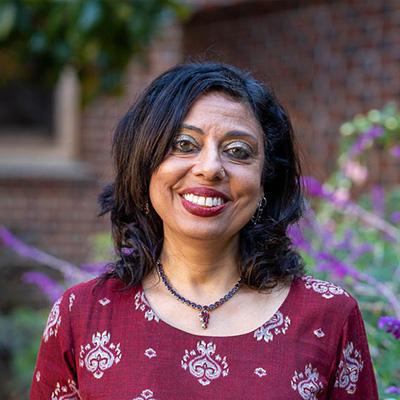Dear CFAR community,
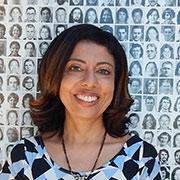
This year, my Valentines are my two little boys and the UCSF CFAR! I wanted to provide an update on the CFAR since my last update in October. We have a few more exciting initiatives that we have started and also wanted to update you on continuing initiatives. With all of your participation and help, the UCSF-Gladstone CFAR is continuing to serve the HIV research community at UCSF and its affiliates.
Please nominate your favorite mentee for a CFAR Early Career Excellence Award by March 2!
The CFAR has a tradition since 2012 of giving out awards to early career investigators. We are now soliciting nominations for the 2020 CFAR Early Career Excellence awards to recognize and honor three outstanding early-career investigators.
CFAR will present three awards – one in each of Basic, Clinical, and Behavioral research - at the CFAR Future Leaders Symposium on April 14, 2020. Recipients of these awards are invited to give a 30-minute talk at the CFAR Future Leaders Symposium and will receive a $750 honorarium.
Please complete the (VERY SHORT) web form here to submit your nomination(s) with your nominee’s information by COB Monday, March 2nd.
CFAR Mentoring Program: Co-Director for Diversity
One platform of my Directorship is supporting early stage investigators of racial/ethnic diversity in HIV research and increasing the diversity among research participants in our cohorts. Towards this end, after a competitive process, we have appointed a Co-Director of our CFAR mentoring program. The major role of this Co-Director position will be to work with early stage investigators (ESIs) at UCSF from underrepresented minority groups (URMs) to provide them with designated support and mentoring. This work will entail monthly lunches with ESIs of diversity for peer support, special and designated mentoring workshops, writing support, grant and Boost award support, and recruitment and retention efforts. Please join me in welcoming John Sauceda, PhD as the Co-Director of the CFAR Mentoring Program (joining Jonathan Fuchs MD, MPH who has been in this role since 2012) in charge of efforts for our URM mentees.
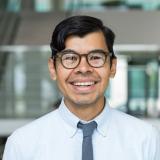
John A. Sauceda, PhD, MSc is an Assistant Professor at the Center for AIDS Prevention Studies (CAPS) within the Division of Prevention Science. Dr. Sauceda is a health psychologist focused on measuring and intervening on the factors to reduce HIV-related disparities among Latinx populations. He is MPI of a NIDA R25 HIV research training program, and co-chairs the early career faculty group at CAPS. He participates in several NIH mentoring programs and has presented on issues of diversity in research across the S.F. Bay Area.
As newly selected Co-Director of the CFAR Mentoring Program, his focus will be on serving and supporting underrepresented minorities (URM) in HIV research so that they have every opportunity to thrive. Dr. Sauceda will build support systems and work to foster an inclusive environment for URMs so their value and differences are appreciated.
Announcing the new CFAR Associate Director of Equity
Given the importance of ensuring that the clinical core of the CFAR recruits and retains diverse participants, and the importance of other equity initiatives across the CFAR, we posted a position for the CFAR Associate Director of Equity.
After a competitive process, this was awarded to Carina Marquez, MD, from the Division of HIV, Infectious Diseases, and Global Medicine. We are very excited to have Carina in this role!
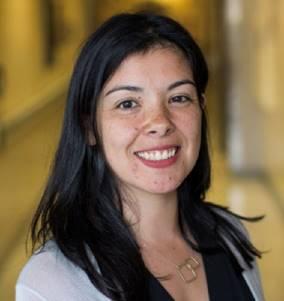
Carina Marquez, MD is an Assistant Professor of Medicine and Associate Director of Education in the Division of HIV, Infectious Diseases, and Global Medicine at Zuckerberg San Francisco General Hospital (ZSFG). She completed her Internal Medicine Residency and Infectious Diseases Fellowship at UCSF.
Her research focuses on elucidating the drivers of the large latent TB reservoir in East Africa and developing interventions to improve the TB and HIV care continuum in East Africa. She is the co-chair of HIV Grand Rounds, the Associate Director of the Infectious Diseases Clinic at ZSFG, and directs the SALUD clinic, a clinic within the Positive Health Practice "Ward 86" at ZSFG, that is dedicated to providing multidisciplinary care to monolingual Spanish-speaking patients with HIV. She is passionate about promoting diversity, equity, and inclusion and is the DEI Lead for the Infectious Diseases Fellowship, served on the UCSF Differences Matter Committee-Pathways, Outreach, and Pipelines, and is an active faculty member in the Internal Medicine Residency Diversity Committee. Outside of work she enjoys dance and exploring the parks of San Francisco with her two children (ages 5 and 1.5 years).
CFAR-ARI Boost Awards
We are particularly excited about a new initiative we have announced since my last Director’s update in October, which are the new CFAR-ARI Boost Awards.
Basically, Boost means that you can put in a request for a smaller amount of money ($50-$5000) to just get you over a hump in what you need in your research or to plan a symposium and meeting with other investigators. These are jointly sponsored by the CFAR and the ARI. The Boost Awards have easy to put in, low-barrier applications, and there is a deadlines every other month (second Wednesday of every even month). The last deadline was February 12th and the next deadline is April 8th.
For individuals (I call these “Boost Me”), you can put in a request for support for items such as salaries/benefits for employees for short term periods to assist in data collection or analysis, consultant costs, shared costs on equipment (computers when allowable), supplies or software, study participant incentives or other items for recruitment/retention, core services (including CFAR core services and biostats support), travel support, training course or workshop fees, poster printing, etc.
For groups (I call this “Boost Us”), you can put in a request for funds to support a symposium, conference , seminar, training, workshop, exhibit or other event of interest, shared equipment costs
Go ahead and apply! Early stage investigators, as always, are encouraged to apply for these Boost awards!
Update on New Prevention Cohort in the CFAR
As announced in October, the clinical core of the CFAR has now expanded from treatment to prevention! With CFAR support and generous contributions from the California HIV Research Program (CHRP), and a cohort grant from the Department of Medicine, Drs. Hyman Scott and Susan Buchbinder have started up a cohort of diverse individuals on PrEP at the San Francisco Department of Public Health. We expect this cohort to become a rich resource for investigators across the CFAR for both extant data and samples and for spin-off studies. Please stay tuned for ongoing information on this exciting new arm of the CFAR Clinical Core in future updates!
Please sign up to attend the CFAR Future Leaders Symposium on April 14
We are excited to be hosting this year’s annual CFAR Future Leaders Symposium on April 14th 2020 at the Gladstone’s Mahley Auditorium. This symposium features early career investigators from across the UCSF CFAR giving short talks with questions and answers and is a lot of fun! Please sign up to attend and support our early stage investigators! We will also be announcing our three ESI Excellence Awards at the event!
Final Composition of the CFAR Internal Advisory Board
The CFAR Internal Advisory Board is now complete. Besides the program or institute leaders we announced previously as being permanent members of our Board, we accepted two members-at-large from a competitive pool, specifically Drs. Eric Goosby and Lillian Brown. Their pictures/titles are below and we are very excited to have their expertise with our standing members of Drs. Susan Buchbinder (SFDPH), Carol Dawson-Rose (UCSF School of Nursing), Joel Ernst (Chief, DEM), Diane Havlir (Chief, Division of HIV, ID and Global Medicine), Marguerita Lightfoot (Director, CAPS), Melanie Ott (Gladstone), Satish Pillai (Vitalant), and Steve Yukl (VA/NCIRE). Carina Marquez in her role as Associate Director for Equity will also join the IAB.
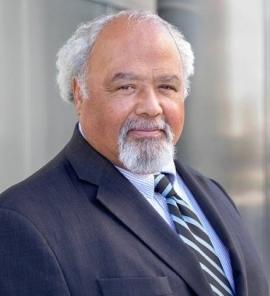
Eric Goosby, MD
Dr. Goosby is a Distinguished Professor of Medicine and Director of Global Health Delivery and Diplomacy, Institute for Global Health Sciences at UCSF, where he has been on faculty since the 1980’s. In January 2015, Eric was appointed by UN Secretary-General Ban Ki-moon to be the UN Special Envoy on Tuberculosis (TB), a role in which he served until last year.
From 2009-2013, he served in the Obama Administration as Ambassador-at-Large and U.S. Global AIDS Coordinator, Assistant Secretary of State, overseeing the implementation of the President’s Emergency Plan for AIDS Relief (PEPFAR), and also founded and led the State Department’s Office of Global Health Diplomacy. During the Clinton Administration, Dr. Goosby was Director of the Ryan White Care Act (brought treatment and enabling services to indigent AIDS patients in 52 US cities) and later, served as Deputy Director of the White House National AIDS Policy Office and Director of the Office of HIV/AIDS Policy at HHS where he created and chaired the Guidelines for Antiretroviral Therapy for Adults, Adolescents, and Pregnant Women.
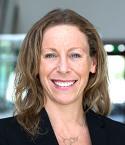
Lillian Brown, MD, PhD
Dr. Lillian Brown is an Assistant Professor in the Division of HIV, ID, and Global Medicine at the Zuckerberg San Francisco General Hospital. She completed fellowship in Infectious Diseases at UCSF and was a post-doctoral fellow at the Center for AIDS Prevention Studies (CAPS).
Her research examines the influence of social networks on engagement in HIV care with the goal of developing novel interventions to improve treatment outcomes in resource limited settings. She is the principal investigator on an NIMH-funded study to investigate the social networks of HIV-infected youth, including youth who recently seroconverted, in rural Uganda and Kenya. She was the winner of the CFAR Excellence Award for Behavioral Sciences in 2018.
CFAR Seminar Series
The new UCSF CFAR seminar series has launched and we have had very successful initial seminars, first with early stage investigators presenting on December 4, Dr. Steve Shoptaw on January 15, and Dr. Bob Silicano on February 12th. The reminder of our speakers for this year include Drs. Michael Mugavero from UAB (April 1 - Postponed), Beatrice Hahn (May 6), Judy Currier (June 3), Sharon Hillier (September 2), Tonia Poteat (October 7), Ada Adimora (November 18), Bette Korber (December 2). Note that Dr. Anthony Fauci, Director of NIAID/NIH, has rescheduled his visit with us to April 20th. A feature of the newly-launched CFAR seminar series is that the external speaker has lunch with early stage investigators to help them in presenting “elevator pitches” to prominent investigators and for career advice.
Welcome to recent faculty in HIV research across the CFAR
The UCSF-Gladstone CFAR welcomes four new faculty to the CFAR enterprise in the last few months, including new faculty in the Division of HIV, Infectious Diseases and Global Medicine, Vitalant Research Institute and the BioHub/DEM, as well as a new post-doc in the DEM. Welcome to the CFAR and congratulations!
If you or your mentee would like to be introduced/highlighted to the wider CFAR communities in future Director's updates, please let me know!
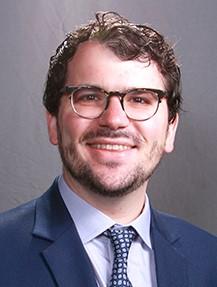
Matthew Spinelli, MD, a former Infectious Disease fellow at UCSF, has just been awarded a K23 grant from the NIMH entitled “PrEP Point-of-Care Brief-Intervention for Adherence among Young Men Who Have Sex with Men (PrEP2-BAY)”. He will join the faculty in the Division of HIV, Infectious Diseases, and Global Medicine at San Francisco General Hospital this quarter.
His research focuses on PrEP care outcomes and adherence measurement. He has worked with the UCSF Hair Analytic Laboratory (HAL) to develop a point-of-care test to measure tenofovir drug levels in the urine, an objective metric of adherence to PrEP. New projects involve the use of point of care diagnostics to enhance PrEP counseling and motivate adherence. He also sees patients at Ward 86 with HIV and on PrEP. In his free time, he likes spending time with his newborn son, Nico.
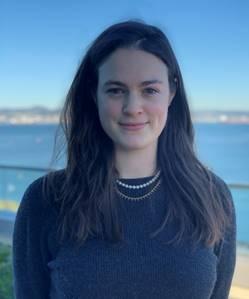
Lillian Cohn, PhD received her Ph.D. from Rockefeller University. As a student in Michel Nussenzweig’s laboratory, she used single cell strategies to investigate latent viral infection in HIV-1 infected individuals. This research revealed important insights into the mechanisms of viral persistence and maintenance of the HIV-1 latent reservoir.
As a Biohub Fellow and an Assistant Professor in the Division of Experimental Medicine at UCSF, Dr. Cohn will continue these studies by using novel strategies to investigate latent viral infection. In particular, her group is interested in understanding the contribution of tissue-resident cells to viral persistence, developing new isolation techniques to study rare latently infected cells, and elucidating how the virus and host cellular environment work together to permit viral persistence during long-term antiretroviral therapy. When not in the lab, Lillian enjoys being outside, reading the newspaper, and dinner parties with her friends and family.
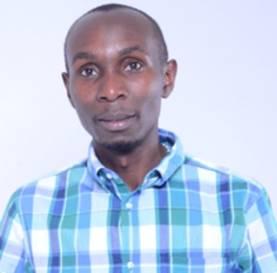
Paul Ogongo, PhD is a new Post-Doctoral Scholar in Dr. Joel Ernst’s Lab. Paul grew up in Siaya, Kenya, before moving to Nairobi, Kenya to attend the University of Nairobi for his undergraduate degree. He later did his MSc at Jomo Kenyatta University of Agriculture and Technology, Kenya.
His first lab job was working on vaccine validation and development of new diagnostic tools for Schistosomiasis in the baboon model under Dr. Thomas Kariuki at the Institute of Primate Research, Nairobi, Kenya. After graduation with an MSc in Molecular Medicine, he moved to KwaZulu-Natal Research Institute for Tuberculosis and HIV (K-RITH), now known as Africa Health Research Institute (AHRI), and University of KwaZulu-Natal in Durban, South Africa to join Dr. Alasdair Leslie lab for his PhD degree. Paul’s PhD project studied Lung tissue resident memory T and B-cells in the immune response to Mycobacterium tuberculosis in humans. His dissertation work resulted in a first-author paper in the Journal of Clinical Investigation, and coauthorship of an original research article in Nature. When not in the lab, Paul loves watching soccer, enjoys his two young sons, and he also runs (long distances) for fun.
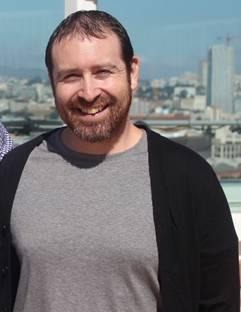
Leonard Chavez, PhD, new faculty at the Vitalant Research Institute, graduated from the University of New Mexico with a degree in Biochemistry and received his PhD in biomedical sciences (Virology and Immunology) at UCSF.
Since finishing his PhD, Leonard has worked at Vitalant Research Institute as a postdoctoral fellow and now faculty after being awarded a K12 grant from the newly-launched Cardiopulmonary, Hematologic, and Immunologic Comorbidities of HIV (CHIC) program .The title of his K12 is "Sequence Entropy-Guided CRISPR/Cas9 Excision of HIV using a Multi-Targeting Lentivirus”. Leonard’s research has focused on host restriction factors that are involved in HIV pathogenesis, with a particular interest in the role that they play in the establishment and/or reversal of HIV latency. Most recently, he has focused on using CRISPR/Cas9 technology to excise/disrupt the provirus by targeting multiple highly conserved regions. Outside of the lab, Leonard used to enjoy cycling around the Bay Area and backpacking in Yosemite. Now that he has a son, he enjoys being a father.
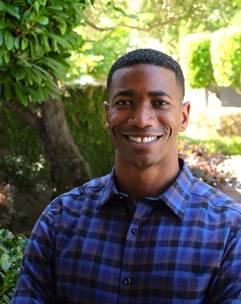
Paul Wesson, PhD was just awarded a K01 grant from NIAID entitled “The science for the last mile: enhanced epidemiologic surveillance to accelerate HIV elimination” and recently joined the faculty of the Department of Epidemiology and Biostatistics (Division of Infectious Disease and Global Epidemiology). He received his PhD in Epidemiology from UC Berkeley (under the mentorship of Drs. Art Reingold and Willi McFarland), where his dissertation research focused on methods to sample and estimate the size of hard-to-reach populations.
He did his postdoctoral fellowship in the Center for AIDS Prevention Studies (CAPS) at UCSF where he developed two novel approaches to estimating the sizes of key populations at risk for HIV infection. As a postdoctoral fellow in CAPS, he also worked with Dr. Sheri Lippman to apply rigorous statistical methods to investigate and quantify the social determinants of HIV infection among adolescent girls and young women in South Africa. He is currently engaged in research to describe homelessness in San Francisco and throughout California, quantitative intersectionality methods, and the social and structural residual drivers of HIV infection in Fast Track cities. Outside of work, Paul enjoys hiking, going to live shows, and traveling internationally.
Congratulations to Drs. Diane Havlir and Steve Deeks in being inducted into the prestigious American Academy of Physicians
The Association of American Physicians is a very prestigious organization and Drs. Diane Havlir and Steve Deeks – given their incredible achievements- were nominated and accepted into the AAP this year. The AAP is a nonprofit, professional organization founded in 1885 by seven physicians, including Dr. William Osler and Dr. William Henry Welch, for “the advancement of scientific and practical medicine.” The Association is composed of members who are leading senior physician scientists and are competitively selected. The goals of its members include the pursuit of medical knowledge, and the advancement through experimentation and discovery of basic and clinical science and their application to clinical medicine. Each year, individuals having attained excellence in achieving these goals, are recognized by nomination for membership by the Council of the Association.
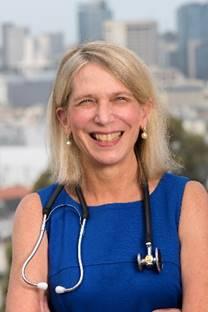
Diane Havlir, MD is a UCSF Professor and Chief of the HIV, Infectious Diseases and Global Medicine Division at San Francisco General HOspital, She was a resident at UCSF when the AIDS epidemic emerged in the 1980s, and she has both cared for HIV patients and conducted research transforming national and international guidelines ever since.
She is a long-standing NIH-funded investigator, has over 300 publications including recent papers in the New England Journal of Medicine and Journal of American Medical Association. Diane leads the SEARCH collaboration - a multidisciplinary international research group testing innovative approaches to reducing HIV infections and preventable deaths and improve community health in east Africa. Dr. Havlir was a co-founder and continues as a co-chair of San Francisco Getting to Zero (GTZ), a citywide consortium with a goal to eliminate new HIV infections and deaths, which is now modelled around the world. She has been very active globally via leadership roles in WHO HIV global guideline groups and as the current Chair of the United Nations AIDS Scientific and Technical Advisory Committee, which provides high-level guidance on global action on the HIV/AIDS pandemic. Diane is a member of the National Academy of Medicine.
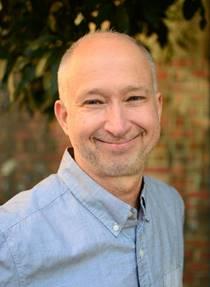
Steve Deeks, MD is a Professor of Medicine in Residence at UCSF. He is a recognized expert on HIV-associated immune dysfunction and its impact on HIV persistence (the “reservoir”) and health during antiretroviral therapy. Dr. Deeks has published over 400 peer-review articles, editorials and invited reviews on these and related topics.
He has been the recipient of several NIH grants, and is one of the principal investigators of DARE (the Delaney AIDS Research Enterprise), which is an NIH-funded international collaboratory aimed at developing therapeutic interventions to cure HIV infection. He is also a member of the Board of Directors for the UCSF-based amfAR Institute for HIV Cure Research. He was elected to the American Society for Clinical Investigation (ASCI), is the Editor for Current Opinion in HIV and AIDS and serves on the advisory board for Science Translational Medicine. In addition to his clinical and translational investigation, Dr. Deeks maintains a primary care clinic at Ward 86.
It continues to be a great privilege to serve as the Director of the UCSF-Gladstone CFAR with all of your participation and I want to thank – as always – Peter Hunt, Co-Director of Basic/Translational Science; Mallory Johnson, Co-Director of Social/Behavioral Science, and Lauren Sterling, Associate Director of the CFAR.
Sincerely,
Monica Gandhi, CFAR Director
